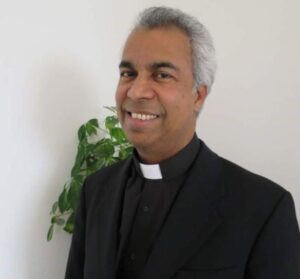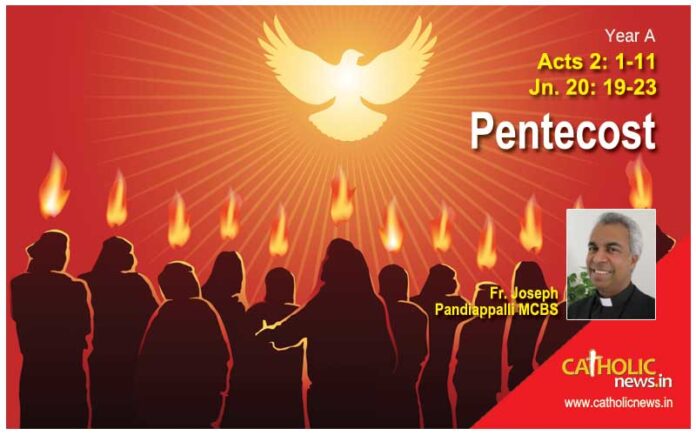
As I was going through the reading and gospel passage of this feast day I thought, I could preach today in a foreign language which the participants of the Holy Mass do not understand. But I am not confident enough to believe that you would understand my sermon although on the feast of Pentecost St Peter preached in his mother tongue and all the hearers from different language zones understood the sermon. We heard today in the reading from the Acts of the Apostles: “And they were amazed and wondered, saying, “Are not all these who are speaking Galileans? And how is it that we hear, each of us in his own native language? Par′thians and Medes and E′lamites and residents of Mesopota′mia, Judea and Cappado′cia, Pontus and Asia, Phryg′ia and Pamphyl′ia, Egypt and the parts of Libya belonging to Cyre′ne, and visitors from Rome, both Jews and proselytes, Cretans and Arabians, we hear them telling in our own tongues the mighty works of God.”
If the participants of today’s mass be people belonging different linguistic and cultural zones, Africans, South Americans, Aborigins of Australia, different people from different casts and tribes of India, Asians, Europeans, Americans and if they all would understand today’s sermon, we could compare it to the sermon of Peter on the feast of Pentecost and to the people who heard it.
How can we understand and interpret this wonder of the gift of understanding in today’s context. We know that many people who belong to different linguistic and cultural zones could remain good friends in spite of their differences. We may know also many couples who belong to different cultures and languages and understand each other very well without speaking the mother tongue of the partner. That means, there is a realm of understanding and loving beyond the realm of language and culture.
We have the example in the Bible that people who spoke the same language, having the same culture and heredity, having the same goal did not understand each other in the story of Babel. The language of the one became foreign to the other. That was the story of Babel in Genesis 11. It is written there that the people in the whole world spoke one language and after a period the people could not understand the language each other.
It is interesting to know that there started conflict because people did not understand the language of the other. There are also cases that people meet each other, start loving and take bold decisions although they do not understand the mother tongue of the other. In the case of Babel people did not understand each other although they spoke the same language. On Pentecost every one understood the sermon of Peter although they did not speak the language of Peter.
This way of understanding and willing to understand without knowing the language of the other and its grammar is the gift of the Holy Spirit. It is the gift of faith. It is the gift of confidence and the gift of wisdom.
Pentecost is the feast of understanding. With the coming of the Holy Spirit we know and understand the humans, the world, God, the partner, the friends, the neighbours, everyone near us.
To understand each other without knowing the language, without grammar and vocabulary, is possible only when we have the gift of the Holy Spirit, the gift of love, ability to love. The symbols and the signs of the Spirit like fire, wind, water, dove, or oil can help us not to loose the art of understanding. I wish you the gift of the Holy Spirit, the gift of understanding.
Fr. Joseph Pandiappallil MCBS



